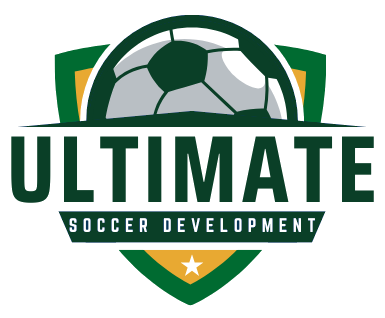Soccer clinics in Mississauga are growing, offering young athletes a variety of opportunities to develop their skills, make new friends, and enjoy the beautiful game. For parents and players new to the game, there are often many questions about what to expect and how to get the most out of their training experience. It is common to have doubts and concerns regarding soccer training, and to help you achieve some clarity about the same; we will address some of the most common FAQs about youth soccer training in this blog. At Ultimate Soccer Development, we provide youth with expert coaching and personalized guidance to help soccer enthusiasts explore various aspects of the game in a safe and supportive environment.
What Age Can My Child Start Soccer Training?
Youth soccer programs typically begin accepting players as young as nine years old. At this age, the focus is on fun, basic motor skills, and an introduction to the game. As children grow older, training becomes more structured and competitive, with a stronger emphasis on technical skills and tactical understanding.
What Equipment Does My Child Need?
Basic equipment for youth soccer includes:
Soccer Cleats: Good-quality training footwear for support.
Shin Guards: Essential for protecting the legs during play.
Soccer Ball: Size 3 for ages 8 and under, size 4 for ages 8-12, and size 5 for ages 13 and older.
Training Clothes: This usually includes a jersey, shorts, and socks, often provided by the academy.
Water Bottle: Staying hydrated is important during training sessions.
How Often Are Training Sessions?
The frequency of training sessions varies by age and skill level. Younger children might train once or twice a week, while older and more competitive players could have three to four sessions per week, along with matches on weekends. It’s important to balance training with school and other activities to avoid burnout. It also depends upon the personal journey and goals of each player.
What Are the Benefits of Soccer Training?
Soccer training offers numerous benefits for young athletes, including:
Physical Fitness: Improves cardiovascular health, strength, and coordination.
Social Skills: Encourages teamwork, communication, and friendship.
Discipline and Responsibility: Teaches the importance of practice, punctuality, and commitment.
Mental Stability: Builds resilience, focus, and the ability to handle pressure.
What Should Parents Expect During the Season?
Parents can expect a busy schedule during the soccer season, including regular training sessions, reviews, weekend matches, and possibly tournaments. Communication from coaches and academy staff will keep you informed about schedules, expectations, and any changes. It’s also important for parents to be supportive, encouraging, and involved without placing any pressure on their children.
What If My Child Wants to Play Competitively?
For children who show a keen interest and aptitude for competitive soccer, our academy offers advanced training programs and competitive teams. This involves more intense training, participation in leagues and tournaments, and a greater commitment in terms of time and effort. It’s important to discuss this with your child and their coach, to ensure they are ready for the increased pressure.
How Can Parents Support Their Child’s Growth as a Soccer Player?
Supporting your child’s growth as a soccer player involves a combination of emotional and practical support.
- Provide Encouragement and Positive Reinforcement: Focus on your child’s efforts and improvements rather than just outcomes. Celebrate their achievements, major as well as minor, and encourage them to keep growing.
- Ensure a Balanced Lifestyle: Help your child maintain a balance between soccer, academics, and leisure activities. Ensure they have time for rest and other extracurricular activities as well.
- Be Present and Involved: Attend their matches and training sessions when possible. Show interest in what they are learning and discuss their experiences.
- Help with Logistics: Manage schedules, transport, and equipment needs. Being organized helps your child focus on their training and matches, and avoids wastage of time.
- Encourage Good Nutrition and Hydration: Provide healthy meals and snacks that fuel their performance. Teach them the importance of staying hydrated.
- Promote a Growth Mindset: Teach your child to look at challenges as opportunities for development. Encourage hard work with a positive attitude.
What Are My Responsibilities as a Soccer Parent?
- Respect Coaches and Officials: Trust the coaches’ expertise and support their decisions. Respecting referees and other officials sets a good example for your child.
- Support Team Spirit: Encourage your child to be a team player, respecting teammates and opponents alike. Promote sportsmanship and fair play.
- Communicate Effectively: Stay in touch with coaches and academy staff. Address any concerns or questions quickly and respectfully.
- Be a Role Model: Demonstrate positive behavior on and off the field. Your attitude towards the game, officials, and other parents influences your child.
- Manage Expectations: Understand that every child develops at their own pace. Focus on their personal growth rather than comparing them to others.
- Support Their Passion: Whether your child dreams of playing professionally or just enjoying the game, support their passion and let them have fun.
We hope the answers to these Frequently Asked Questions gave you some clarity on soccer training for youth. Whether your child wishes to pursue a professional career or looks at the game as a hobby, it’s important to prioritize fun. Creating a safe space for your child to learn and develop is crucial during their growing ages, and it is the responsibility of the soccer academy as well as the soccer parents. To join our Mississauga Summer Soccer Camp at Ultimate Soccer Development, contact us today at (647) 880-6121 or write to us at Coachkyle@ultimatesoccerdevelopment.ca









